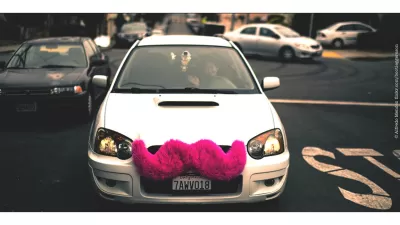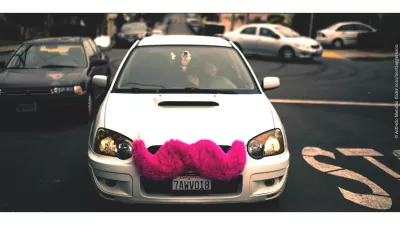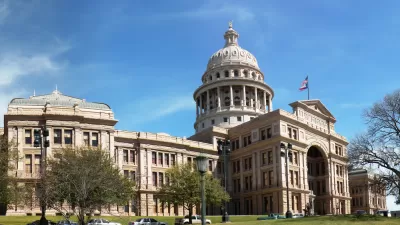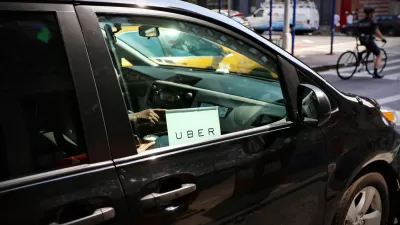According to a Deloitte report, St. Louis commuters could save upwards of $220 million a year, with an additional $493 million in regional road construction savings. All the city needs to do is lift restrictions on rideshare.

St. Louis is the largest U.S. metro where transportation network companies like Uber and Lyft are banned. Ron Klein, executive director of the Metropolitan Taxicab Commission (MTC), "said differences between Uber and the MTC regarding insurance and background checks for UberX drivers must be resolved before UberX may operate in St. Louis."
A Deloitte report finds that commuter savings would be well worth lifting the ban. Additional benefits include environmental gains and reduced traffic accidents. "The report also said ridesharing in St. Louis could each year save 7.1 million hours in travel delays; save 2.8 million gallons of gas; reduce carbon emissions by 131,000 metric tons; and reduce accidents by 328." Traditional forms of rideshare like carpooling are included in the estimates.
Mayor Francis Slay has urged the MTC to adopt the services of transportation network companies. Whether the MTC's concerns are reactionary or justified is up to the future to decide.
FULL STORY: Report: Ridesharing could save St. Louis commuters $227 million annually

Study: Maui’s Plan to Convert Vacation Rentals to Long-Term Housing Could Cause Nearly $1 Billion Economic Loss
The plan would reduce visitor accommodation by 25,% resulting in 1,900 jobs lost.

North Texas Transit Leaders Tout Benefits of TOD for Growing Region
At a summit focused on transit-oriented development, policymakers discussed how North Texas’ expanded light rail system can serve as a tool for economic growth.

Why Should We Subsidize Public Transportation?
Many public transit agencies face financial stress due to rising costs, declining fare revenue, and declining subsidies. Transit advocates must provide a strong business case for increasing public transit funding.

How to Make US Trains Faster
Changes to boarding platforms and a switch to electric trains could improve U.S. passenger rail service without the added cost of high-speed rail.

Columbia’s Revitalized ‘Loop’ Is a Hub for Local Entrepreneurs
A focus on small businesses is helping a commercial corridor in Columbia, Missouri thrive.

Invasive Insect Threatens Minnesota’s Ash Forests
The Emerald Ash Borer is a rapidly spreading invasive pest threatening Minnesota’s ash trees, and homeowners are encouraged to plant diverse replacement species, avoid moving ash firewood, and monitor for signs of infestation.
Urban Design for Planners 1: Software Tools
This six-course series explores essential urban design concepts using open source software and equips planners with the tools they need to participate fully in the urban design process.
Planning for Universal Design
Learn the tools for implementing Universal Design in planning regulations.
City of Santa Clarita
Ascent Environmental
Institute for Housing and Urban Development Studies (IHS)
City of Grandview
Harvard GSD Executive Education
Toledo-Lucas County Plan Commissions
Salt Lake City
NYU Wagner Graduate School of Public Service





























